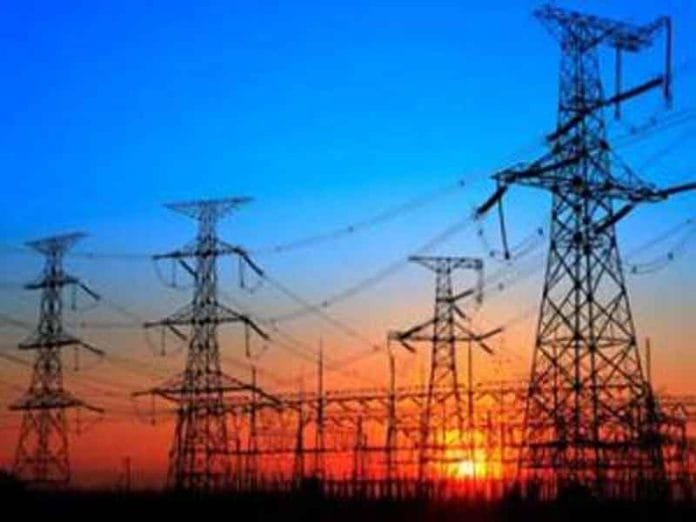Madhya Pradesh is poised to revolutionize its energy landscape with the anticipated launch of its nuclear power plants by 2029. This monumental shift marks a significant advancement in the state’s energy sector, promising to reduce dependency on private energy suppliers and bolster its energy infrastructure with sustainable nuclear power.
Transforming Energy Production: The New Nuclear Projects
The state of Madhya Pradesh is preparing to integrate nuclear power into its energy mix, significantly transforming its energy production capabilities. Two major nuclear power projects are under construction: the Chutka Nuclear Power Plant in Mandla and the Bhimpur Nuclear Power Plant in Shivpuri. These projects are expected to meet the state’s growing electricity demands and align with its long-term energy strategy.
Chutka Nuclear Power Plant: A Strategic Investment
The Chutka Nuclear Power Plant is located in Chutka village of Mandla district. Spanning an area of 1200 acres, this facility will feature two reactors, each with a capacity of 700 MW, collectively generating 1400 MW of electricity. The estimated construction cost for this project exceeds 17,000 crores. This plant is set to play a crucial role in diversifying the state’s energy sources and enhancing its energy security.
Bhimpur Nuclear Power Plant: Scaling Up
In addition to the Chutka plant, the Bhimpur Nuclear Power Plant in Shivpuri district will cover more than 2000 acres. This facility will house four reactors, each with a capacity of 700 MW, for a total output of 2800 MW. With an estimated expenditure of 35,000 crores, the Bhimpur plant represents a major investment in the state’s energy future, aimed at significantly increasing the state’s nuclear power generation capacity.
Impact on Energy Independence and Private Sector Dependency
Currently, Madhya Pradesh sources approximately 33% of its electricity from private companies, with a notable portion coming from non-conventional methods. The introduction of these nuclear power plants is expected to reduce this dependence and provide a more stable and reliable energy source. The Energy Department’s recent letter of consent marks a pivotal step in moving away from heavy reliance on private suppliers, offering greater control over energy production and pricing.
Reducing Dependence on Private Sector
The state’s strategy to incorporate nuclear power aims to diminish reliance on private energy providers. The share of private-sector electricity in the total purchased power decreased from 34% in 2021 to 32.86% in 2023, indicating a trend towards reduced dependency. As the nuclear plants come online, this percentage is expected to further decline, enhancing the state’s energy autonomy and stability.
High-Level Committee for Project Oversight
To ensure the timely completion and successful operation of these nuclear projects, the Madhya Pradesh government has formed a high-level committee. This committee, chaired by Additional Chief Secretary Energy Manu Srivastava, includes key officials such as the Additional Chief Secretary Water Resources and Public Works Department, Principal Secretary Revenue, Divisional Commissioner Jabalpur, and various directors and project heads from the Nuclear Power Corporation of India Limited (NPCIL).
Committee’s Role and Objectives
The committee’s primary responsibilities include addressing construction obstacles, expediting project completion, and ensuring compliance with legal and environmental regulations. It will oversee land acquisition, compensation, and the rehabilitation of displaced families, while also providing administrative support for public hearings and necessary approvals.
Nuclear Power’s Role in Madhya Pradesh’s Energy Future
The integration of nuclear power is a strategic move to enhance energy security and sustainability in Madhya Pradesh. With the projected capacity of 4200 MW from both the Chutka and Bhimpur plants, the state is set to make a substantial leap towards a more stable and diversified energy portfolio.
Environmental and Economic Benefits
Nuclear power offers several environmental benefits, including lower greenhouse gas emissions compared to fossil fuels. By investing in nuclear energy, Madhya Pradesh aims to contribute to national and global efforts in combating climate change. Economically, the construction and operation of these plants are expected to create numerous job opportunities and stimulate local economies.
Future Prospects and Challenges
As Madhya Pradesh advances towards nuclear power, it will encounter various challenges, including technical, regulatory, and community-related issues. However, the formation of the high-level committee demonstrates the state’s commitment to overcoming these hurdles and ensuring the successful realization of its nuclear energy goals.
A New Era for Madhya Pradesh’s Energy Sector
The development of nuclear power plants in Madhya Pradesh represents a significant milestone in the state’s energy journey. By 2029, the state will embark on a new era of energy production, characterized by increased self-sufficiency and reduced dependency on private energy suppliers. With a strategic focus on nuclear power, Madhya Pradesh is setting a benchmark for sustainable and resilient energy solutions in India.
















